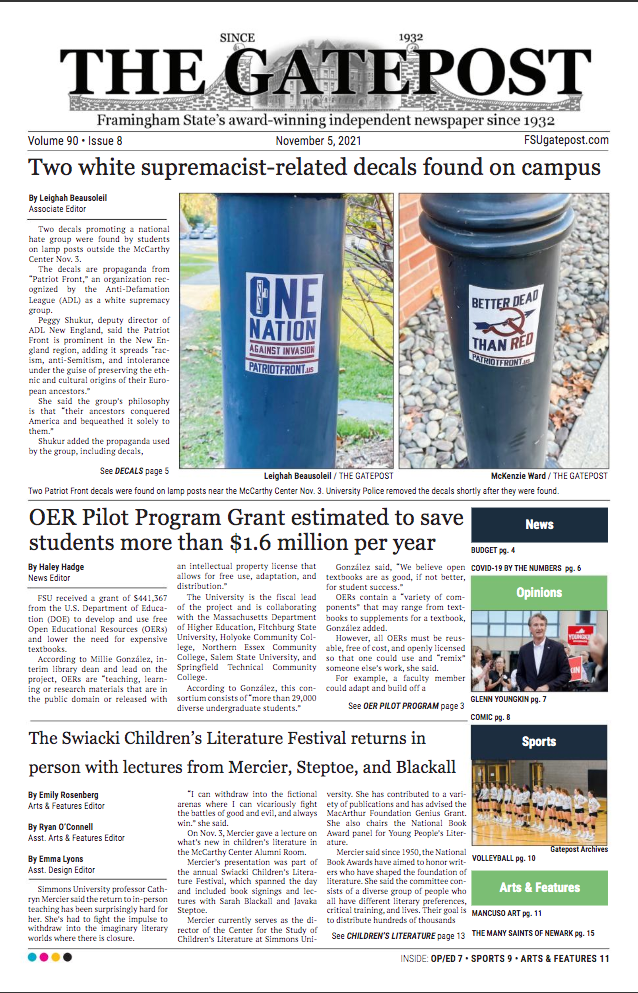Attributing to our mentors
- Oct 26, 2021
- 3 min read
Updated: Nov 21, 2021
This week is Peer Mentor Appreciation Week, which is not necessarily journalism-related, but can serve as a moment to appreciate other mentors in our lives.
One of my on-campus jobs is as a peer mentor in Framingham State University’s First-Year Foundations Seminar Program. This is a class that is attached to a regular course, but dedicates its hour-block time to help first years adjust to college and find their footing.
I do enjoy mentoring for this program, but there is nothing I love more than mentoring others in journalism. It’s just a subject that I could go on forever about - explaining all its intricacies, sharing funny stories, and helping up-and-coming journalists find their voice.
I am no expert in journalism, nor am I a professional teacher, but I do what I can with the experiences I’ve gained so far in both my academic and professional careers.
I’ve had my fair share of mentors who have helped shape me into the journalist I have become and are in fact still shaping me.
When first starting out in journalism, it is good to seek out those who may make the right mentor for you, whether they are a journalist, an educator, or a peer - mentors come in many forms.
To find journalist mentors, you can start by conducting informational interviews with journalists at local papers. They tend to be very busy people, but if you express your interest in obtaining a mentor they may be able to help or point you in the right direction.
To find educator mentors, simply seek guidance from those running your journalism or related program - go to their office hours, ask questions, have discussions - you’re bound to form a relationship with them through these simple steps.
To find peer mentors, follow those basic steps I mentioned in a previous post: shadow and co-write. Some of the most valuable relationships I have formed with my peers have begun with writing together. Even after you have found your own voice, co-writing can prove valuable in evaluating how others approach their work and formulate their own voice into their writing.
I am sure they will be just as excited to help you on your journey as I am to help my fellow peers.
Once you have formed these relationships, it will be 100 times easier to reach out to your new mentor and ask for some time to discuss journalism questions, go over new or old articles to see where you can improve, and seek advice.
Not only will these mentors be able to help you as you grow, but they will serve as key references when you begin to apply to scholarships or begin to apply for journalism positions.
Mentors are so important to gaining experiences in any field and any aspect of life.
They are leaders and role models who may not have been the ones to teach you the technical skills of your profession, but will provide you with the sparks that ignite a life-long passion.

Mentors may be where you least expect them. They can even be educators from elementary, middle, and/or high school.
Many teachers throughout my education have encouraged my writing. It may have never been journalism writing, but it was a start.
The small lessons of teachers can stay with us for the rest of our lives in ways that we least expect them too.
Little did I know my eighth grade social studies teacher’s “Knowledge Gap Fillers” - a weekly list of 10 facts we should know about the world - would be one of the ways I got interested in current events and local politics.
Who would have thought seven years following his insistence on us knowing who the mayor of Woonsocket, Rhode Island was, I would interview her as a freelancer for The Woonsocket Call newspaper.
He would always insist I try publishing my cringey teenage poetry in the newspaper. If only he could see me now with almost 80 published works among three different newspapers.
Appreciate your mentors.
I know I do.




Comments